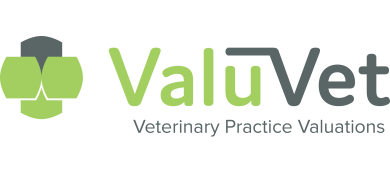Insurance for practice purchase FAQs
There are many misconceptions about the role that insurance plays in your practice purchase. Often, buyers will be too busy with business plans, arranging finance, renovation or reinvestment to spend much time thinking about insurance…
When insurance is thought about during the purchase process, it is often dismissed as discretionary, optional and overly pessimistic…that is, until the buyer gets close to the finish line and realises that their finance provider and/or landlord may only approve your loan or tenancy if insurance cover has been arranged.
We asked the experts at Credabl finance and Experien Insurance Services (Experien), to give us clarity on what insurances a buyer may need to have in place to complete a practice purchase.
Q1. What insurance/s would you typically need to have to get a bank loan to purchase a vet practice?
In many situations, a bank will want Life Insurance, Income Protection and/or Business insurance in place as a condition of the loan. The insurances required can vary on a deal-by-deal basis, e.g., a high loan-to-value ratio may trigger this. Unfortunately, the risk of illness, injury and other perils may not be insignificant over a long period of time, and so the bank will want to know that insurance is there to protect the ability for the loan to be repaid, should this happen. This would protect the borrower and the lender and, most importantly, your family and your investment.
If applicable, the bank will most likely:
want the insurance in place prior to the loan being settled and/or in the process of being established.
require ongoing confirmation that the insurance is in place and, in some situations, they may own the policy (with the borrower paying the premiums) to ensure any claims paid go to the intended purpose.
require to be named on the policy as a “interested party”, to give them adequate protection.
Q2. What insurance/s would you typically need to have in a commercial lease of a vet practice premises?
Landlords will usually request $20Mil of Public Liability and also Glass insurance as a minimum requirement, in order to approve a lease of their premises. Some may want comfort that there is also insurance for the contents (including the fit out). And, in single-tenanted buildings (e.g., a stand-alone house converted into a practice), the landlord may require the tenant to pay the cost of the building’s own insurance.
Since most practice sales are subject to the purchaser either purchasing or leasing the premises, and the premises lease is dependent upon insurance…it is a good idea to be looking into insurance for the premises with plenty of time up your sleave, so as not to hold up settlement of practice purchase.
Q3. If you are planning on buying the Real estate premises with the Vet Practice…,would you need additional insurance/s?
For lending purposes, you will need building insurance to cover the replacement value of the property. This is a figure typically stated in a valuation report. In other words, cover and purchase price are not necessarily correlated.
An exception to this will be if it is a body corporate, then it will automatically be included in the body corporate fee.
Q4 What information would you need to provide in order to get these insurances and how long will it take?
Depending on the type of insurance required, getting insurance can take as little as a couple of days to as much as a few weeks to set up.
Gathering the necessary information to apply for insurance can take time, for example:
life insurance policies may need a medical assessment
Premises lease – an insurer might need construction information for the property
